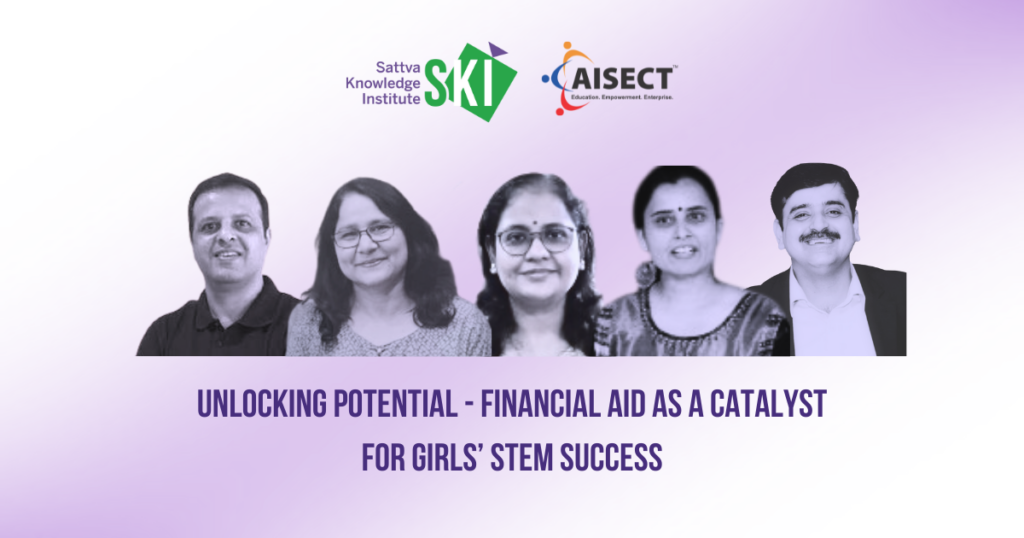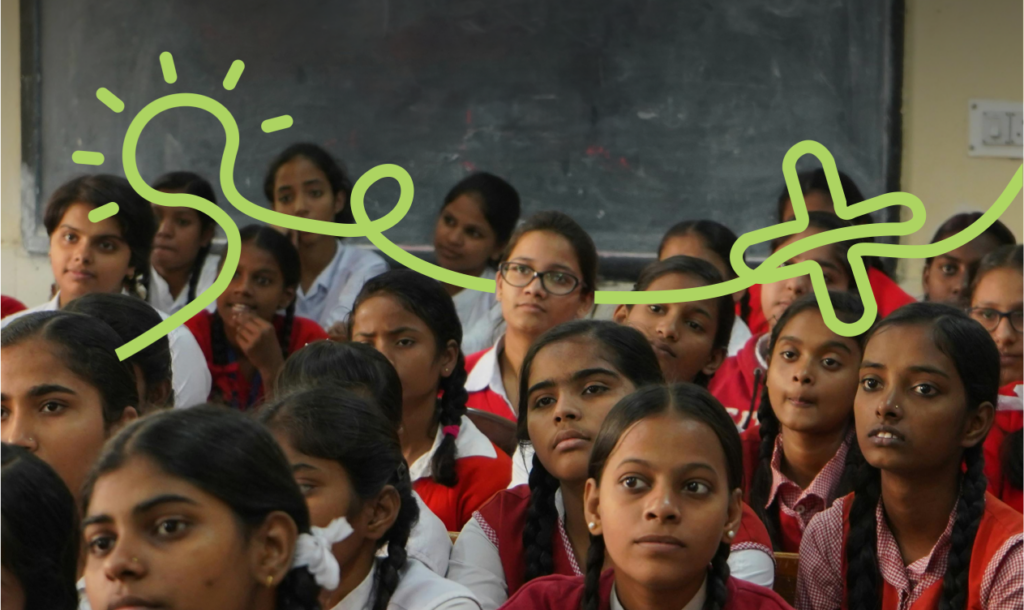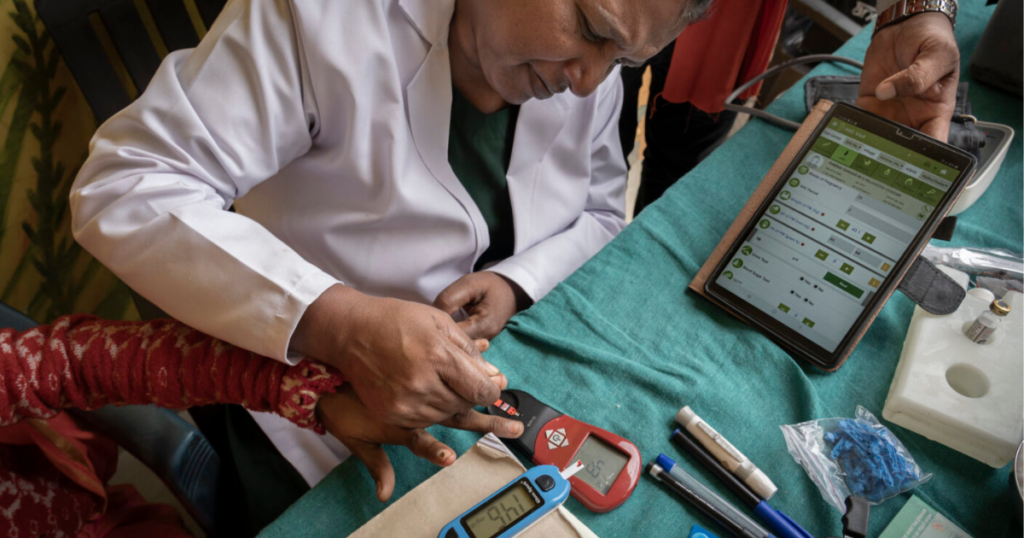Female students in India are 20% less likely to choose science, technology, engineering or mathematics (STEM) or commerce education compared to their male counterparts. With the fourth industrial revolution driving the demand for STEM skills and the creation of 60-65 million jobs in India’s digital core sector, addressing this gender disparity becomes crucial. Currently, 96% of students in India are not pursuing technical or professional education, with girls facing additional challenges to pursue STEM education, thereby increasing their risk of exclusion.
To avoid losing out on the benefits of the demographic dividend and replicating the current gender divide in the labour force, timely intervention is required. Research shows that young girls aged 8-10 are passionate about science, but their interest and self-esteem decline during adolescence leading to low uptake of STEM education in India. Prevailing gender norms, intergenerational barriers, limited accessibility, and affordability issues hinder their progress in STEM education programmes. Safety concerns and the high cost of STEM education further exacerbate the problem. Additionally, the absence of innovative and gender-sensitive pedagogy, as well as a lack of female teachers, contribute to
disengagement from STEM education.
The transition from graduation to the workforce reveals a troubling trend, with only 29% of women who graduate in STEM courses joining the STEM workforce. Barriers such as the ‘dual role’ syndrome and a gender-insensitive work environment need to be addressed to ensure the participation and retention of women in STEM fields.
Retaining young girls in STEM at the age of 15 is crucial. Implementing a combination of targeted initiatives and comprehensive solutions is crucial for enhancing women’s participation in STEM education programs. Promising interventions include programmes like the Plan-It initiative by ICRW and the World Bank’s Tejaswini project to improve enrollment, retention, and graduation rates in secondary and higher secondary schools. Ed-tech interventions such as BEI and Filo can address infrastructure, teacher availability and access disparities. Government of India’s Atal Tinkering Labs, Pratham’s Vigyan Mitra and CARE India’s interventions foster curiosity in STEM courses, particularly among women. AnitaB.org comprehensively supports women’s transition from education to the tech workforce. These interventions, implemented at various life stages, promote women’s engagement and involvement in STEM education and careers.
To achieve scalable impact, a combination of targeted and comprehensive interventions is necessary. A lifecycle approach, exemplified by programmes like Navgurukul’s year-long residential programme for retaining women in STEM education, is recommended. Creating cross-cutting collaboration among different stakeholders, including the government, community organisations, parents, teachers, and students from middle school to vocational technical education, is crucial. Uniting funders and implementers towards this common goal will further strengthen the impact of the collaboration leading to the uptake of STEM education by women in India.
Authors: Dr Shweta Gaur, Anantha Narayan, Harshita Kumari, Drishti Maan and Sarayu Mathur.
- Dr. Prerna Kumar, Head-Public Policy, Convergent View Research and Consultancy Pvt Ltd
- Ms. Jayashree Mane, Pratham Science Program Head, Pratham
- Ms. Priya Iyer, Independent Consultant (Education)
- Mr. Shailendra Patil, Marketing Director, Filo
- Ms. Richa Choudhary, Consultant, World Bank
- Ms. Priyanka Saxena, Senior Technical Specialist, Girls Education Program, CARE India
- Ms. Nidhi Anarkat, Co-Founder and CEO, Navgurukul.




